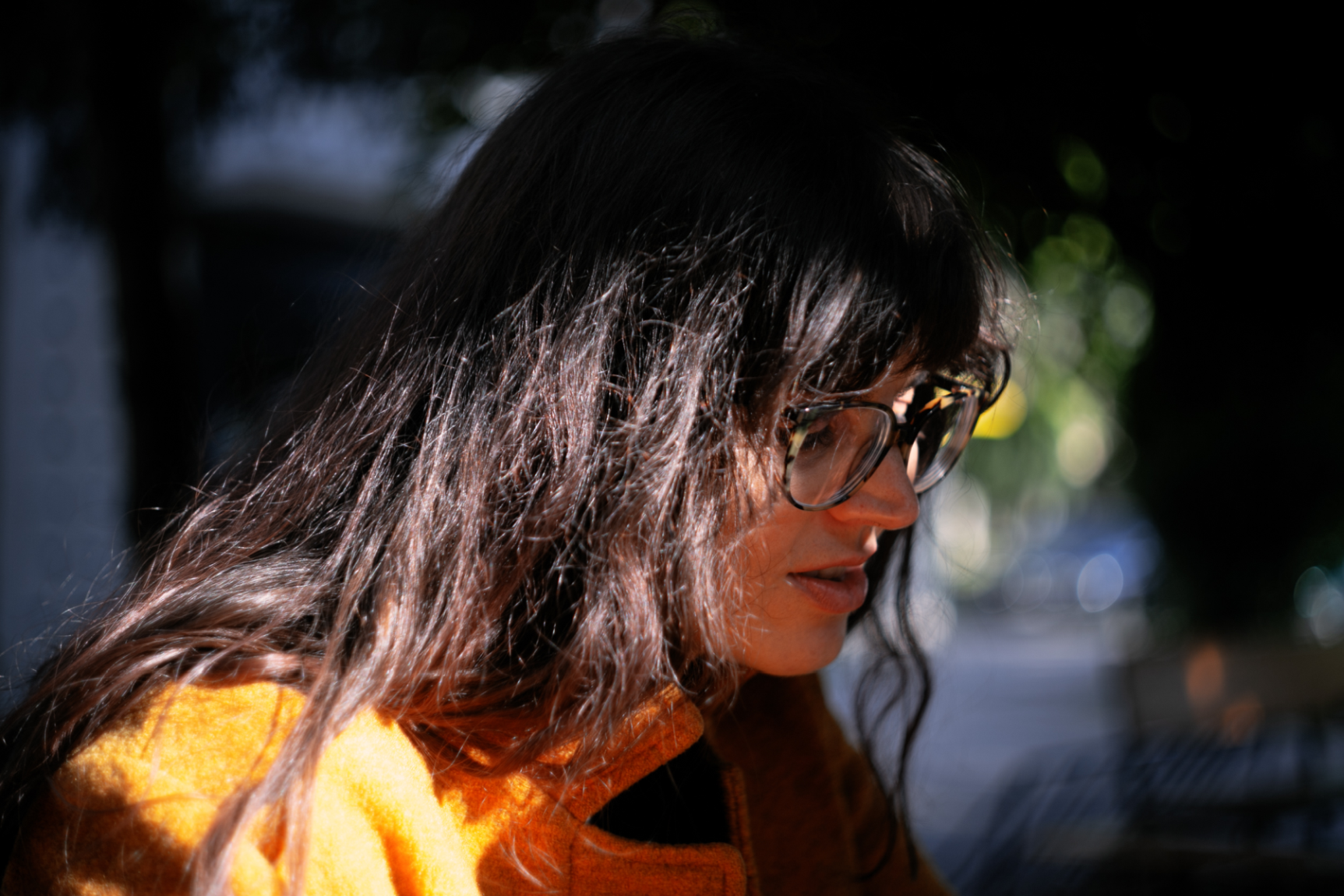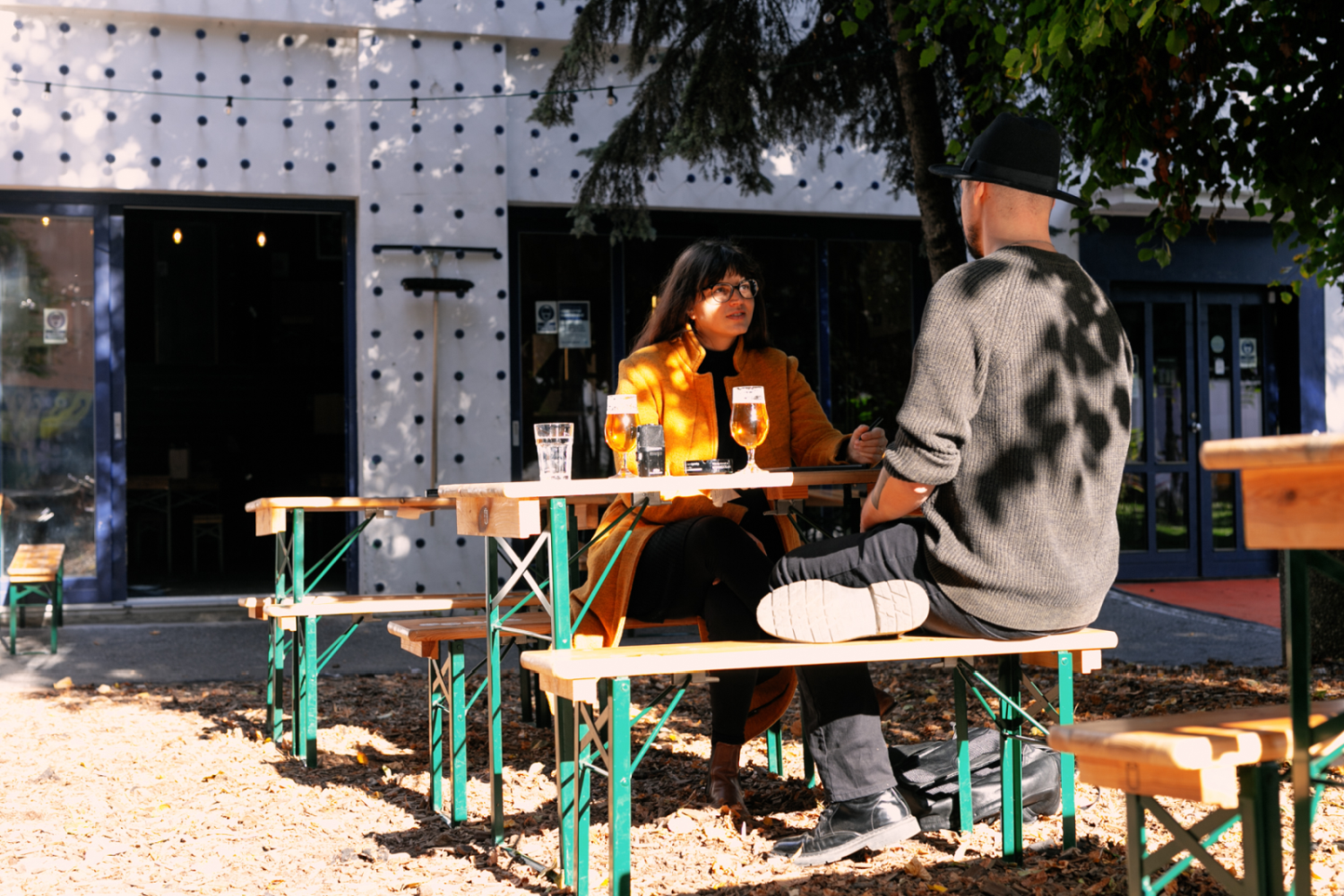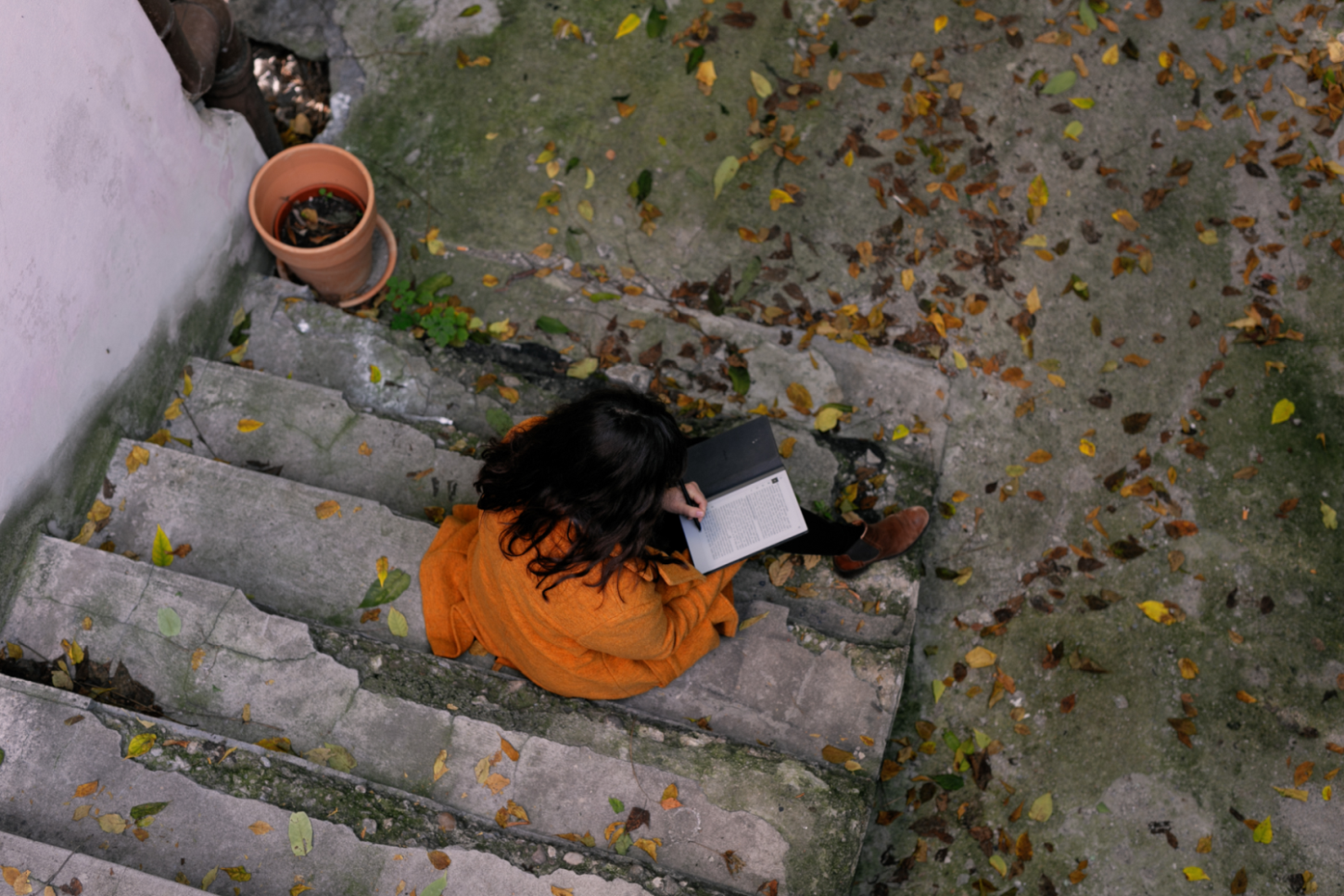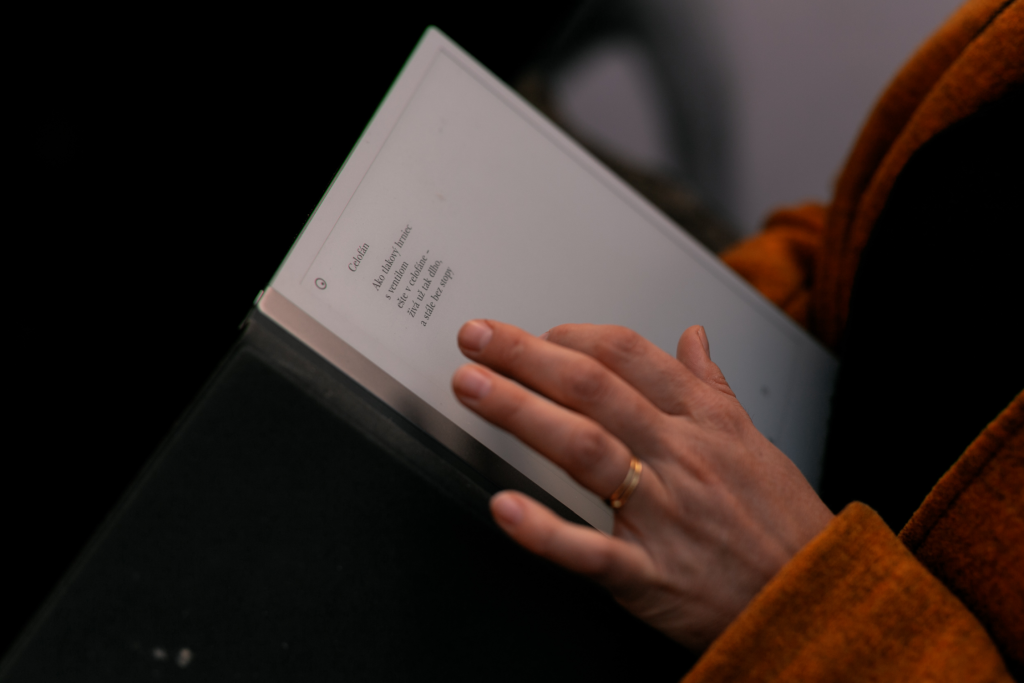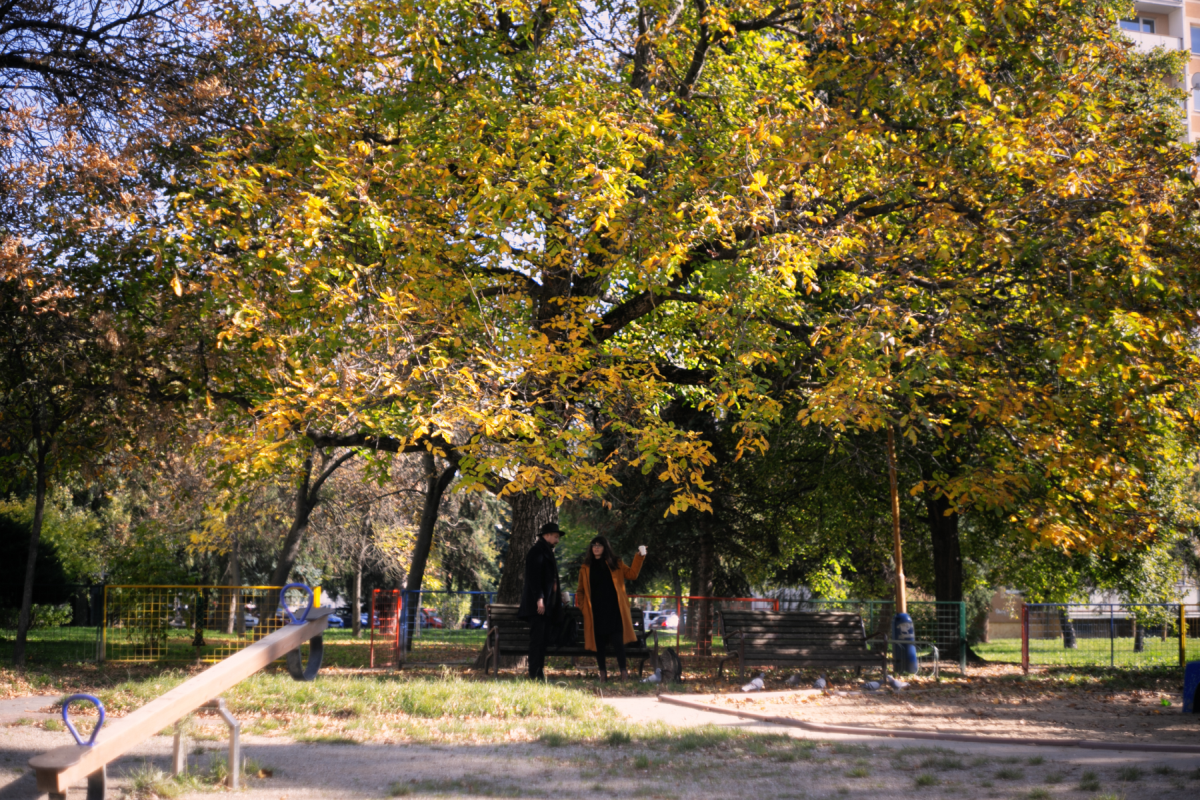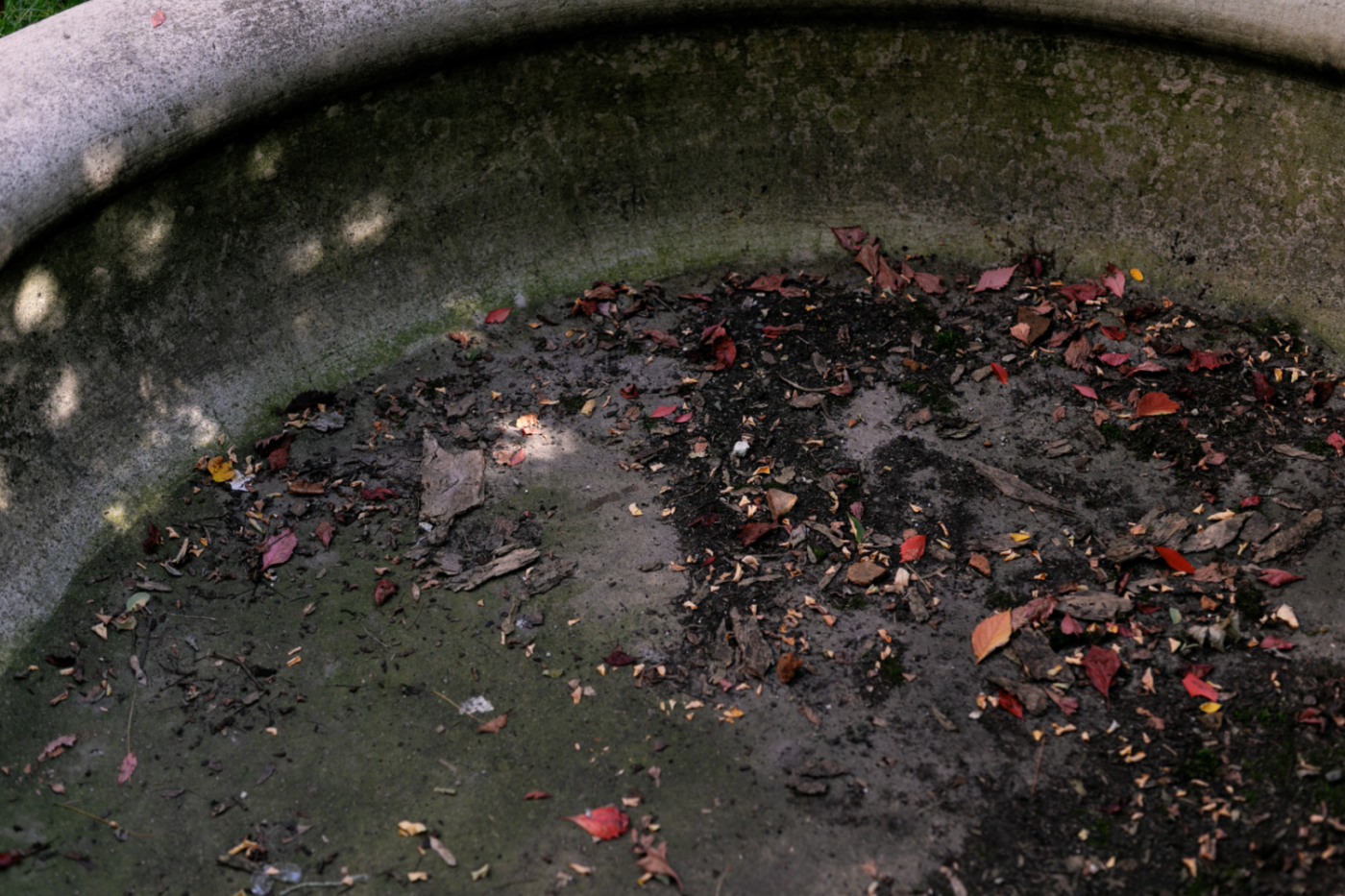Adventure! About writing, freedom, reading sessions in the cinema Kino Úsmev, literary and movie residencies with Juliana Sokolová
Juliana Sokolová is a poet and an essayist. She is a PhD student of the theory of architecture at Academy of Fine Arts in Prague. She studied philosophy at the University of York and taught at the Faculty of Arts at Technical University in Košice. Currently, she works as a curator of author readings sessions called Literature and film in Kino Úsmev, and also works on a new residential program Literary residencies in Košice. We met at the remarkable tree growing in the playground where her sons play now and which used to grow in her grandparent’s garden. During the stroll through the city, she uncovered the magic of many courtyards and specifics of her own thinking and writing production.
Septimius Severus is choosing me
Many places where I lived were not chosen by me. However, my first association with the word “choose “is that Septimius Severus chooses me (laugh)! Septimius Severus was a Roman emperor with whom we were crossing many paths. In Libya, we lived in Misurata near Leptis Magna, the ruin of an enormous Roman city, which might be destroyed nowadays. One of the first memories I have is of how we walk around Leptis Magna. Septimius Severus was born in Leptis Magna, and throughout his reign, the city expanded a lot. When I studied in York, I encountered a statue of Septimius Severus during one walk! He died there during one of his expansions. So I am not sure if I chose him, or Septimius Severus chose me (laugh). I don’t know if I have a more serious response. I returned to Košice more than ten years ago, but pictures and scenes from previous cities still accompany me.
I learned how to cultivate internal autonomy from my parents
I grew up in Košice in a family firmly bound with the city. My family is a typical mix of Košice, which doesn’t need to be specifically glorified. The dissolution of Czechoslovakia was very hard for my parents – they sadly watched the upgrowth of nationalistic moods accompanying the separation, like the slogan “In Slovakia, we speak Slovak “. For them, Czechoslovakia was a country they could relate to because it didn’t force them to choose their nationality and language. They could peacefully and happily use the Slovak language without indicating a robust and violent identity. The way they dealt with the situation back then was that they decided to live in Košice, which was still their city, but they refused to accept nationalistically polarized state establishments. Our passports could be changed from Czechoslovak to Slovak ones, but our city became our country.
So, I grew up in an environment characterized by practice, which we could call keeping internal autonomy. It was the result of my parents’ character traits, something I would call inner strength. When I think about things that formed me during my childhood, it is mostly my parents, how they behaved and used the language, how they intonated, told stories, and jokes. It was the way they reacted to specific situations and how they behaved towards others and themselves. For example, when talking about my mum, I have always perceived that she feels relaxed in her own body, coming naturally from her inner peace and relaxation. It is pretty formative to be daily around someone so relaxed in their body and intuitively kind to others.
It is not important to know where I’m heading as long as I have a feeling of adventure
I don’t consider it strange to combine many different spheres of cultural life since I am interested in accuracy and rigourosity in each of them. At the same time, I don’t perceive an intellectual life to be separated from the rest of living in general. Thinking is a vital and crucial part of it. The research or theoretical project I work on needs to have an element of adrenaline and adventure, at least in its initial phase. It is essential to follow the feeling when you deal with something because it is crucial for you to learn and understand why and how something works. It doesn’t mean that thing needs to be practical. The feeling of adventure is an indicator, which says: wow, I don’t know what’s happening now, but it opens up the dimensions and horizons, it helps me to understand things we are living, and also answers the question of why. Even in intellectual projects, we orientate according to our intuition.
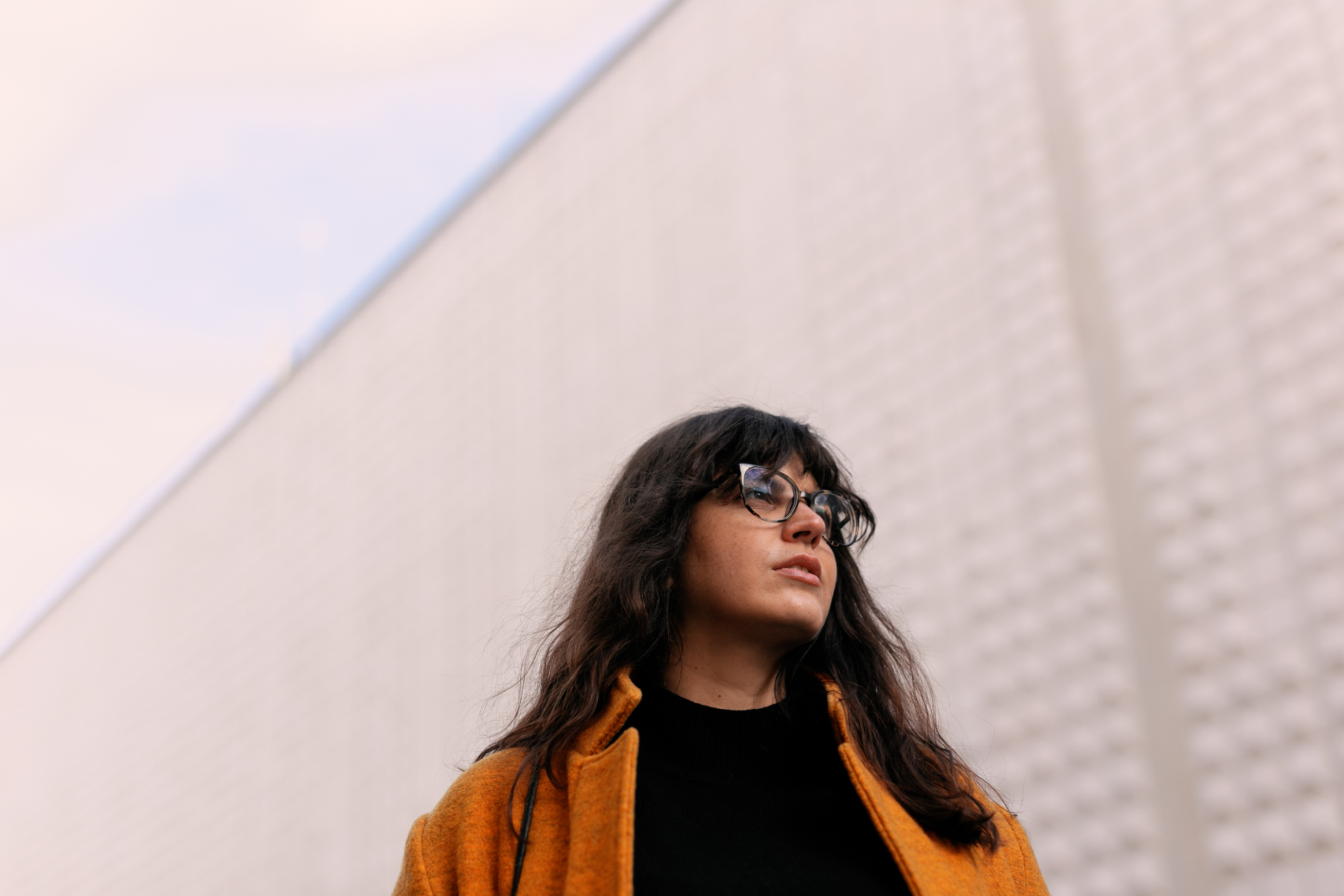
My house will have a roof
The original poems in the book were written in English, and I created them shortly after I returned to Košice from London. English was still the language of my intellectual being; it is the language of my adulthood. I am emotionally bounded with the Hungarian language, even though the language of my early education is the Slovak one. After I returned, the English language stayed with me. I call it a double dislocation. It is relatively common that authors write in the language of their environment and not the language they were born into. If I stayed in London, the language of my creations would be English, and it wouldn’t be odd. But the moment of return put me in a situation where I do not belong fully in any environment. Language is a medium of my work; it would be different if I was doing art. It took me a pretty long time to accept it the way it is. The poetry doesn’t have roots in warm feelings towards the mother tongue, nor does the expertise in language define its quality. It is essential for a language you write in to allow you explore places – inside yourself and in the world – which you would have otherwise never visited, says the poet Yveta Shanfeldová.
I wrote the book called My house will have a roof (Môj dom bude mať strechu) in English because I wouldn’t be able to write it in any other language. English was my language of mourning. The manuscript got to Fra Book Publishing House in Prague, interested in Slovak poetry, and they wanted to publish the book in two languages. Their impulse was the reason why two versions of poems were created. I didn’t translate the poems but rewrote them from scratch. I am thankful for this process since I learned a lot about the Slovak language, its limits, and mine. Immediately after publishing, the collection of poems fell into the ditch. They just didn’t fit in any of the languages’ contexts, or they fitted the weirdness of both of them. After some time, I realized that this weirdness is productive, and thanks to it, I can reach accuracy according to my interests better.
Returning to Košice
I returned to Košice even though I didn’t know what I would do here. However, I felt an absolute certainty in my body that I needed to be nowhere else but in Košice. I was working on many things here. I am now working on a manuscript of a new book of poems; I organize author readings in Kino Úsmev and a new residential program Literary Residencies Košice that is focused on literary production. I also work on my PhD research of residential architecture and raise two young boys, who were already born in Košice, and they grow up here. However, recently, I have decided to pause the research for one year due to the difficulties of emotional experiencing and care during the pandemic.
Household chores & prehistoric darkness
The manuscript I work on now is a book of poems called Household Chores. I call the form of many of the poems in the book the poem-essays. In this book, I am interested in what we deal with while doing the household chores: weird darkness that is prehistoric and waits. There is a lot of tension in trying to constantly establish order. Every society comes with a different answer of how to organize life to face this tension. The final manuscript will be in the Slovak language.
Radical domesticity
My current architecture research is based on what I was interested in Philosophy and what I can see in our daily effort to survive a day. I am curious about how we organize lives and physical spaces and what types of living are allowed by various organizations of the space or activities. That is why I am interested in domesticity, how we organize and live in our homes, and what types of life these configurations allow us to live. The more I got into physical expressions of the problem, the more I shifted my attention from philosophy to the theory of architecture.
Literature and film
Even though writing is usually an individual activity, it is important to share a common world from time to time; to create space for talking about the writing. I am interested in how different authors experience the process of creation. I missed a space for such discussions and joint reflections of the literary creation process in Košice. When the new Kino Úsmev was created, it offered a suitable space also for an intellectual program. Intellectual in a form that it is something which feeds your mind, not that it is too academic or dull. It is a space drama! The concept of Úsmev has always been a cinema as a center for audiovisual culture. We wanted to support the production, including writing for and about a film and writing in general as well. We wanted to explore how a film influences the literary production of individual authors, which films impacted them, and so on. That’s how the concept of Literature and film was created. It is the author’s reading and discussion, after which we screen a movie chosen by the author. The connection between literature and film is quite flexible here, but it is evident in some cases. For instance, the Polish poet Zbigniew Machej introduced an anthology of Polish poems inspired by movies and read Slovak translations of his film poems. We also experiment on how different types of texts work in the form of live reading. For example, a screenwriter Barbora Námerová read from her script for a film “Svetlonoc” that she was currently working on. It worked great, as the text was lovely written from a literary point of view. In the beginning, the audience was different for every author. But after three years, the cycle already has its stable audience.
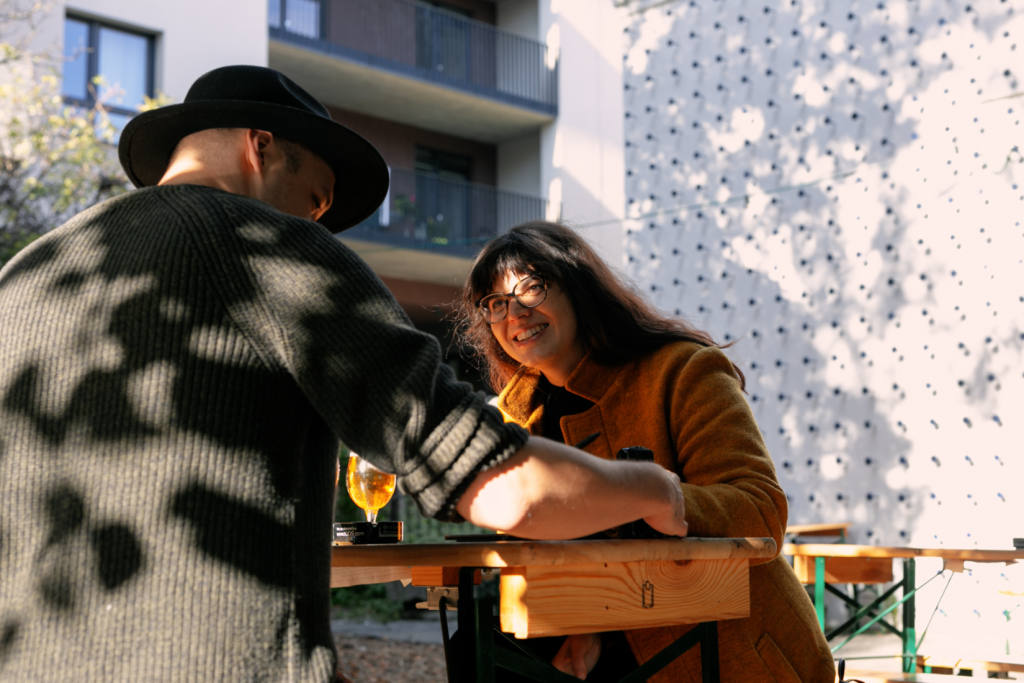
Gradually we split the literary and film residencies. For authors, it is still attractive to write in Košice
Residencies of Kino Úsmev have grown organically from how the cinema worked, with whom it cooperated, and the cycle of Literature and film. Many authors who did the author’s reading here questioned us about possibilities of residencies in Košice, as they felt good in Košice. But at that time, it was only K.A.I.R. residencies focused on art that worked well, none that would focus on film or literary production. When the Visegrad Literary Residency Program was created, there was a discussion to make them in Košice since there was a potential in the city. But it didn’t happen. Since the first Open Call for residencies in Úsmev, many high-quality authors have applied who only deal with literature. That is why we have decided to split the residential programs. Besides the film residencies, we created the individual residential program Literary residencies Košice, which is not dependent on film anymore. Authors who come here to work and create enrich the community to interact and network in the city.

